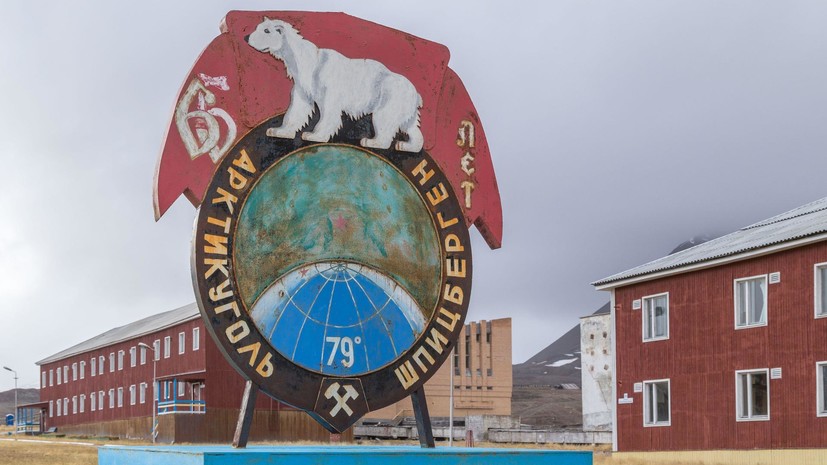The Svalbard archipelago in the Arctic Ocean belongs to Norway, but, according to the special status of the region, Russia also conducts economic activities here.
Russians live and work in the village of Barentsburg.
Two more settlements - Pyramiden and Grumant - are now mothballed.
Until recently, one of the routes for the delivery of necessary goods to the villages ran through the territory of Norway.
However, the country's authorities, citing EU sanctions, banned the transit of Russian cargo to Svalbard.
Miner Alexander Yatsunenko has been working at the Barentsburg coal mine since 2018.
According to him, back in May, everyone on the island was waiting for the arrival of a large dry cargo ship from Murmansk.
However, the ship did not come.
“There should have been not only food, but also household chemicals, spare parts for snowmobiles and thermal power plants.
Our climate is harsh, equipment wears out, and the heating plant is the heart and stove of the village.
And if Barentsburg survives without snowmobiles, then it doesn’t exist without a heating plant, ”says Alexander RT.
Now, says Yatsunenko, the routes for the delivery of goods through the territory of Norway are also blocked.
However, as he notes, there are no problems with food in the villages.
“Perhaps only the lack of sweets from Russia is noticeable: there are no cookies, sweets and chocolate.
And Russian flour, sugar, meat and milk were replaced with products from Estonia and Germany.
But some food from these countries was previously supplied to the island, says Yatsunenko.
- As for the repair and maintenance of equipment, we can make something here with our own hands - we have a small factory where specialists can do some things.
So for now, everything is working, but how long it will last is unknown. ”
"The village will have to be mothballed"
Consul General of Russia in Svalbard Sergey Gushchin, in an interview with RT, noted that, according to a previously issued order from the Norwegian authorities, the Norwegian Foreign Ministry may allow Russian carriers to transport food, medicines and medical products, as well as make an exception for spare parts of ships, machinery and equipment for the operation of the mine and a thermal power plant, that is, all those things without which the villages will not be able to function.
“We have only one option left - to send cargo directly by Russian ships from Murmansk and Arkhangelsk to the port of Barentsburg.
The access of our ships to the archipelago is still open, although this is a rather expensive and inefficient way to deliver goods,” the diplomat explains.
The Russian Embassy in Oslo sent a letter to the Norwegian Ministry of Foreign Affairs, which contains a request to release goods from the ban on transit to Russian settlements on Svalbard.
But, according to Gushchin, the Norwegian Foreign Ministry has not yet responded to the appeal of Russian diplomats.
Gushchin says that the blockade could hit Barentsburg very painfully.
“The blocked containers contain not only food, but also medical equipment, as well as components for cars and parts for an offshore barge that delivers diesel fuel.
If the cargo does not arrive, then the village will have to be mothballed after the local reserves of diesel fuel run out, ”concluded Sergey Gushchin.
In the Arktikugol trust, RT explained that they were already negotiating with two Norwegian carriers, who were ready not only to remove containers stuck after the ban from the border, but also to deal with deliveries in the future.
“Today, the question of logistics has arisen.
Before the ban, goods were transported from Murmansk through the Borisoglebsk customs post, further along mainland Norway to Tromsø and from there on Norwegian ferries to Svalbard, - explains the representative of the trust.
— In Tromsø, our carriers loaded cargo onto the ferry.
In connection with the latest ban, our goods were released from Russia, but they were not allowed into Norway.”
According to a company representative, the consequences of the cargo delay are not felt yet.
In addition, since due to the special status of Svalbard (according to the Spitsbergen Treaty, Russia, along with Norway, has the right to economic activity in the archipelago), the trust hopes that the ban on the transit of Russian cargo will be lifted.
“Even before, we could not bring some products to the archipelago, for example, caviar.
But if we are unable to deliver building materials and spare parts here, the consequences will be sad,” Arktikugol explains.
“So we need regular supplies.”

